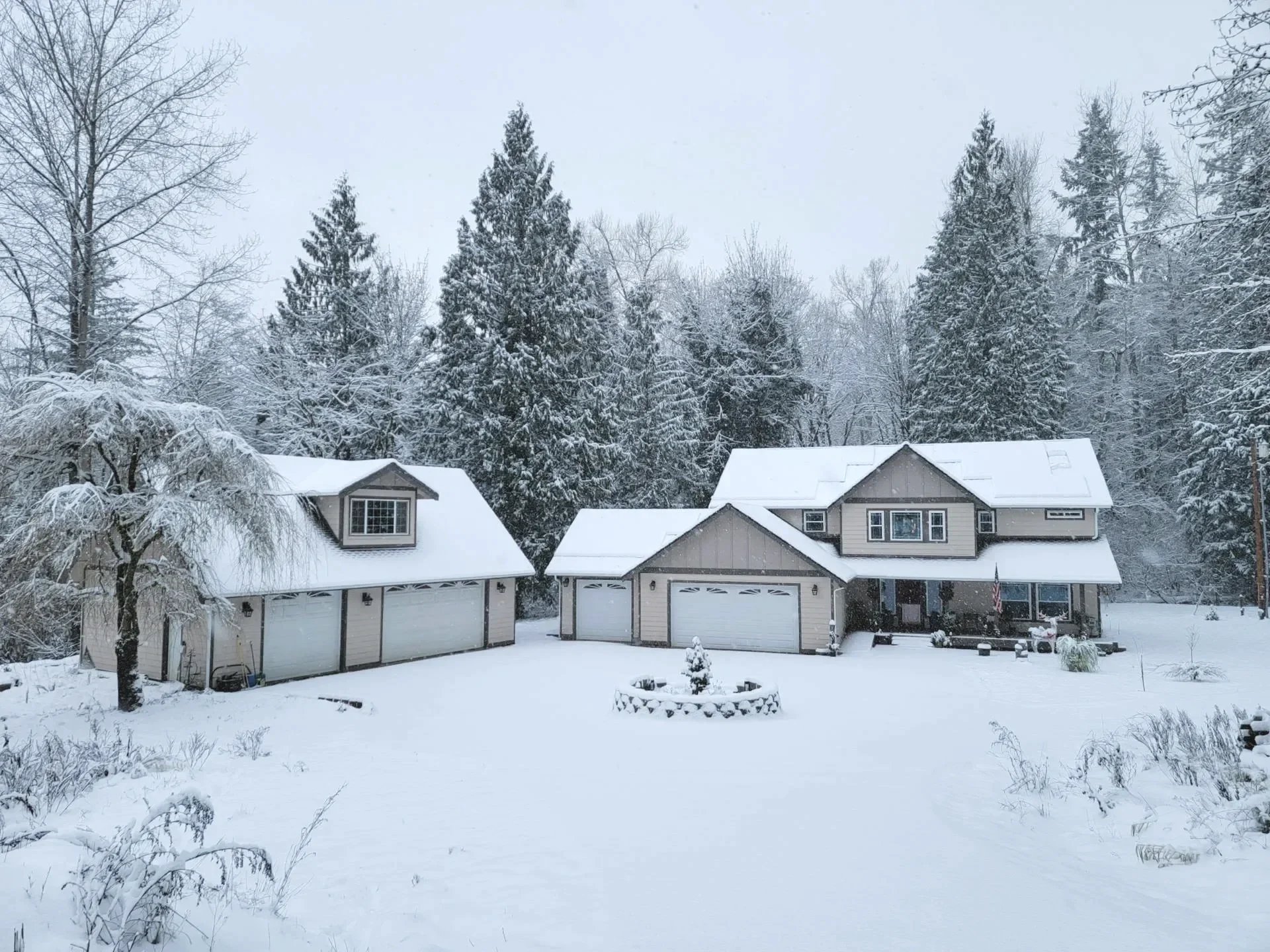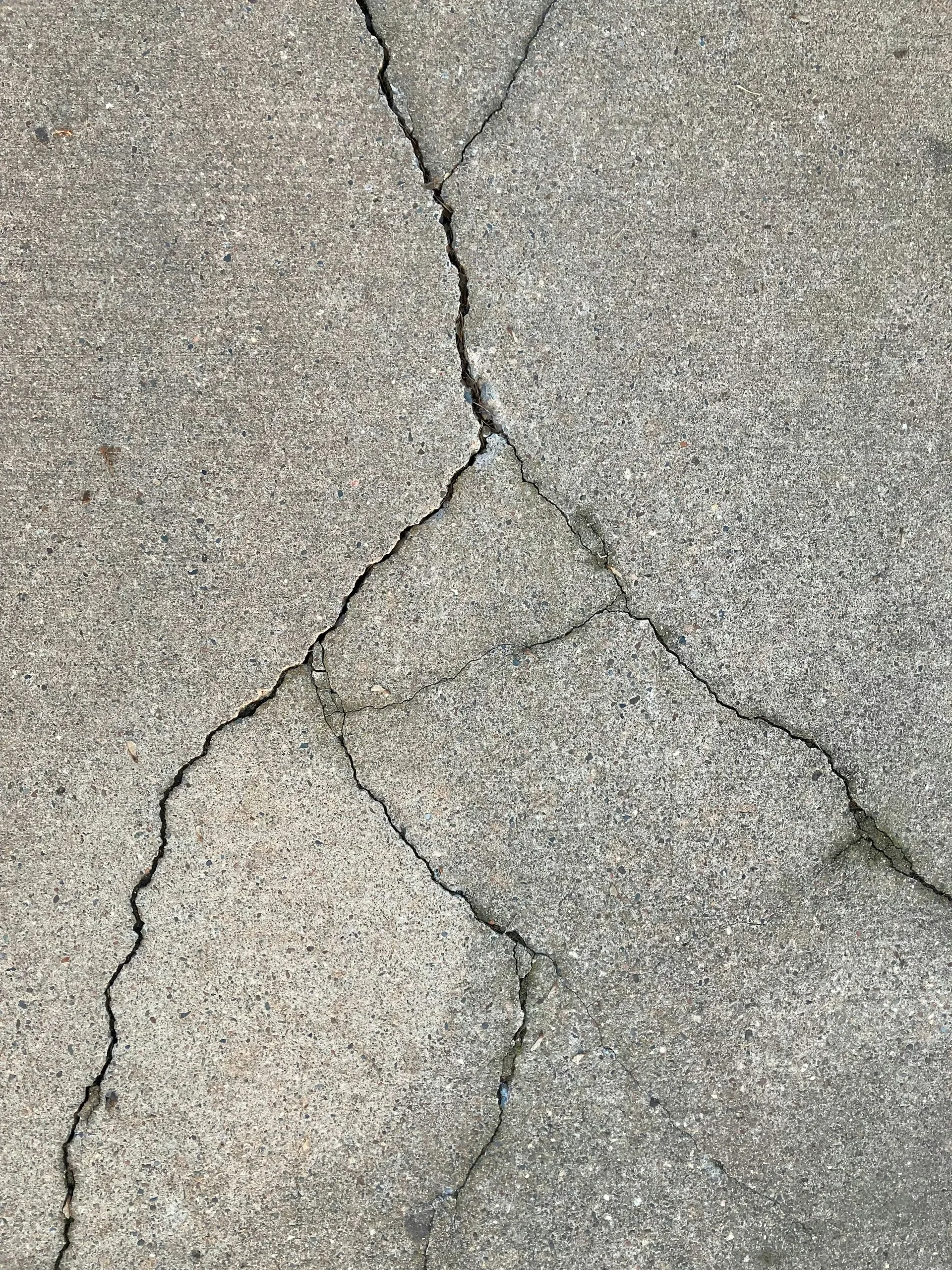How to Protect Your Concrete Driveways From Harsh Wisconsin Winters
Wisconsin winters are no joke. Between the heavy snow, sub-zero temperatures, and the constant freeze–thaw cycles, your concrete driveway takes a beating. If it’s not properly cared for, those winters can shorten the life of your driveway, leading to cracks, spalling, and costly replacements down the road.
At Hendricks Concrete, we know firsthand how the Bay of Green Bay and nearby Lake Michigan influence the weather in Northeast Wisconsin. Those shifting weather patterns mean homeowners here need to take extra steps to protect their concrete in cold weather. The good news? With the right preparation and ongoing care, you can help your driveway stand strong for years to come.
How Cold Weather Damages Concrete
Concrete is tough, but it isn’t indestructible. It’s naturally porous, which means water from snow and ice can seep into the surface. When temperatures drop, that water freezes and expands, creating pressure that can cause cracks, chips, or surface scaling.
Homeowners often ask how long they need to protect concrete from freezing. The truth is, this only applies right after a new pour. If exterior concrete freezes overnight before it has cured, the damage is permanent. That’s why Hendricks Concrete never pours exterior concrete past October 31—and often stops earlier if temperatures start to dip. Once your driveway is fully cured, freezing temps themselves aren’t a problem. From that point on, it’s all about ongoing care to minimize damage from snow, ice, and salt.
Steps to Protect Your Concrete Driveway From Snow & Ice
The real enemy of cured concrete isn’t freezing—it’s the combination of snow, ice, and salt that sits on your driveway all winter. Here’s how to protect your concrete during those tough months:
Use clean sand, not salt – Rock salt and many chemical de-icers can eat away at your driveway. Clean sand provides traction without harming the surface.
Clear snow regularly – Shovel or blow snow before it bonds tightly to the surface. Less moisture = less risk of damage.
Watch out for road salt from vehicles – When you park your car after driving on salted roads, that salt melts off and concentrates in the same spot on your driveway. Over time, this causes pitting. Try not to park in the same spot all winter. If you get a warm day, rinse your driveway off. And wash your vehicle frequently—it’s good for your car and your driveway.
Be mindful of plows and shovels – Metal blades scraping against the surface can chip concrete. Use plastic shovels or adjust plow blades slightly higher.
Quick Tips: Protecting Your Driveway This Winter
Use clean sand instead of salt for traction.
Clear snow early before it bonds to the surface.
Don’t park in the same spot all winter — road salt drips cause pitting.
Rinse your driveway on warm days to wash away salt buildup.
Wash your vehicle often — it’s good for your car and your concrete.
Winter Maintenance Tips for Longevity
Once winter sets in, consistency is key. Even small habits throughout the season can add years to your driveway’s life:
Inspect often – Walk your driveway every few weeks and check for small cracks or spalling. Addressing issues early prevents bigger repairs later.
Rinse on warm days – Take advantage of mid-winter thaws to rinse away built-up salt and grime from both your driveway and your vehicle. This helps prevent concentrated damage in one spot.
Avoid harmful chemicals – Skip the harsh de-icers. Stick with clean sand for traction.
Protect edges and joints – Keep heavy piles of snow off the edges of your driveway and out of expansion joints, where thawing water can cause stress.
Plan for resealing – Even though Hendricks doesn’t provide sealing, most homeowners benefit from resealing their driveways every few years. Check our Concrete Care page for guidance.
By layering these small actions over time, you’re extending your driveway’s service life and protecting your investment through the harshest Wisconsin conditions.
When to Call Professional Concrete Contractors in Green Bay
Sometimes, regular care isn’t enough. If you notice:
Deep cracks that keep getting worse
Surface spalling or flaking
Drainage issues causing standing water
…it’s time to call in the pros. Hendricks Concrete has decades of experience with concrete in cold weather, and our team knows how to evaluate whether your driveway is a candidate for repair or if it’s time for a full driveway replacement.
Protect Your Driveway This Winter With RG Hendricks
Your driveway is an investment—and Wisconsin winters are tough on that investment. By taking preventive steps early in the season, sticking to safe maintenance practices, and knowing when to call a professional, you can extend the life of your driveway and avoid costly problems.
At Hendricks Concrete, we’ve built our reputation as Green Bay’s trusted concrete driveway contractors. Whether you’re looking for expert advice or considering a replacement, our team is here to help.




